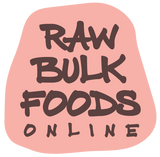Navigating the Sustainable Path: In a highly GREENWASHED WORLD
In a world grappling with environmental challenges like plastic pollution, sustainable living has become more than just a buzzword; it's a call to action.
One of the key concepts that have risen to the forefront of the sustainability movement is "zero waste," and at the heart of this movement is the idea of a closed-loop system.
I want to share the truth with you of what a truely closed-loop system is and why it's a game-changer in addressing the plastic pollution problem. We'll also delve into practical tips for a zero waste kitchen, sustainable living, and how to spot greenwashing in the market.
Zero Waste Kitchen
A zero waste kitchen is more than just a trend; it's a lifestyle choice that advocates for a reduction in food and packaging waste. By adopting earth-friendly practices in your kitchen, you not only cut down on waste but also save money and contribute to a healthier planet.
The Closed-Loop System: A Sustainable Solution to Plastic Pollution
A closed-loop system, also known as a circular economy, is a revolutionary concept in the fight against plastic pollution. It's a holistic approach that aims to reduce waste by minimising, reusing, and recycling resources within a system. Here's why it's the key to solving the plastic pollution problem:
-
Reduces Single-Use Plastics: In a closed-loop system, the emphasis is on designing products and packaging for reusability that the company can control not leaving it to the "Recycling bubble". This significantly decreases the need for single-use plastics.
-
Recycles Efficiently: Recycling is at the heart of the closed-loop system. Plastic materials are collected, processed, and repurposed, stopping the demand for new plastic production or new materials entering the loop.
-
Minimises Waste: By prolonging the life of products and materials in our case our packaging, this stops waste ending up in landfills or the ocean. This prevents plastic from becoming pollution in the first place.
-
Encourages Sustainable Business: Companies that embrace a closed-loop approach are committed to sustainable practices. They design products & packaging with longevity in mind and often prioritise eco-friendly materials.
You ask does recycling not do this currently? Absolutely not, the truth is only about 9% of products & packaging is getting reused. Recycling is not a closed loop many would argue it has more holes than my grandmothers favourite Swiss cheese. Recycling is not working and cannot withhold another 20 years at the rate we are using and throwing away.
Sustainable Living Beyond the Kitchen
Sustainable living is a broad concept that extends far beyond the kitchen. It's about making conscious choices in every aspect of your life, from transportation to clothing and energy consumption. Reducing your carbon footprint and minimising waste are central to sustainable living. We all have to start somewhere and the biggest take away is
Support closed loop solution which reuse your trash in some way the more we support the increase in demand. Speaking from experience setting up a closed loop solution is hard, there is no blue print and the barriers top entry is very hard with hardly any funding given to the world changing initiatives.
So companies paving this path need your help more than and I think we can all agree the world needs more closed loop solutions..
Tips too Beware of Greenwashing
Greenwashing is a marketing strategy that some companies employ to appear more eco-friendly than they actually are. Be on the lookout for buzzwords and phrases that can be red flags:
- "Natural" (which doesn't always mean environmentally friendly)
- "Plastic free" (This statement should mean the contents inside the box too)
- "Eco-friendly" (without concrete evidence)
- "Green" (when there's no substance behind the claim & colours)
- "Plastic Free" but ingredients includes PVOH (This can break down to micro plastics)
- "Carbon Neutral" this doesn't always mean the whole business including to your door it could just mean the delivery leg is offset yet the rest of the business is built on all new material outweighing any possible offset
- Organic: While "organic" has clear meanings in certain contexts (such as organic farming), it can be used ambiguously in other contexts. Check what actually is organic.
- Recyclable: Even if a product is recyclable, it doesn't mean it will be effectively recycled. Look for claims about the percentage of recycled content or other sustainable practices
- Green Labels: Be cautious of logos and labels that look eco-friendly but lack accreditation from reputable certifying bodies.
- Vague Claims: Any marketing language that lacks specific details or data to back up environmental or sustainability claims.
- Biodegradable: Products labeled as biodegradable may not break down as quickly or efficiently as implied, and they may not biodegrade under typical disposal conditions
Dig deeper into a company's practices and product to ensure that their commitment to sustainability is genuine NEVER BE AFRAID to ask the question any company should welcome the questions. They may not be perfect like ourselves but we can share all our intiatives in quest to strive for a cleaner planet.
In a world where sustainability is a growing concern, understanding the difference between genuine sustainable companies and those engaging in greenwashing is crucial.
In conclusion, adopting a closed-loop system and embracing a zero waste lifestyle, especially in the kitchen, can play a significant role in solving the plastic pollution problem.
It's a commitment to rethinking our relationship with resources and reducing waste at every level. Closed loop adoption will be the answer & hugely contribute to a more sustainable, waste-free, and thriving future.

